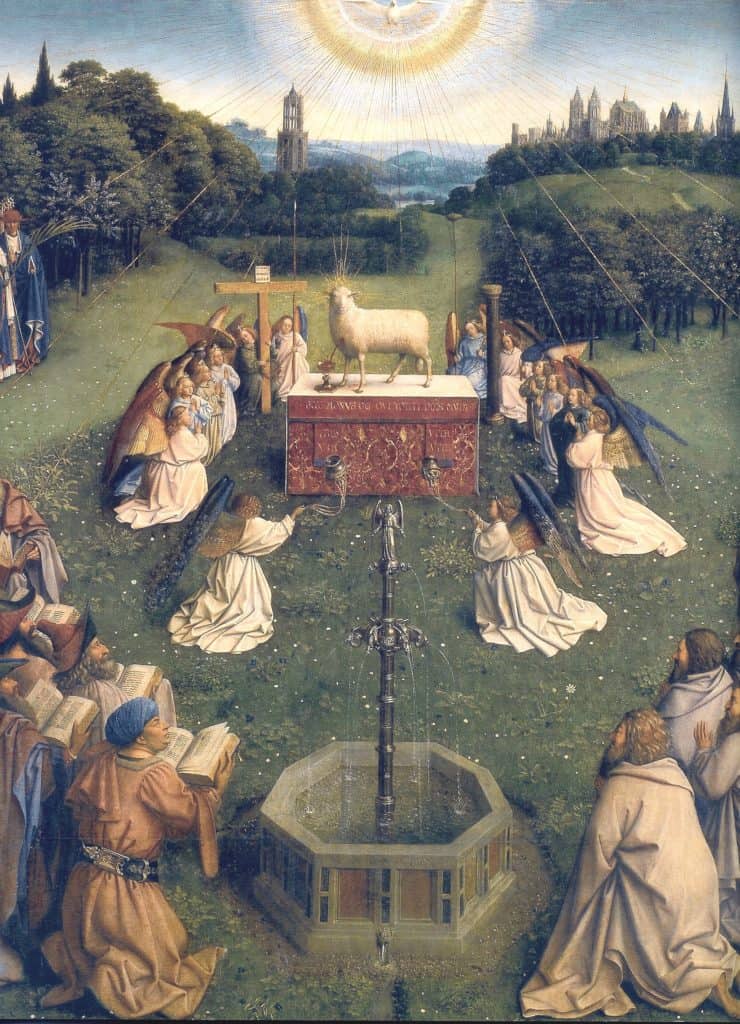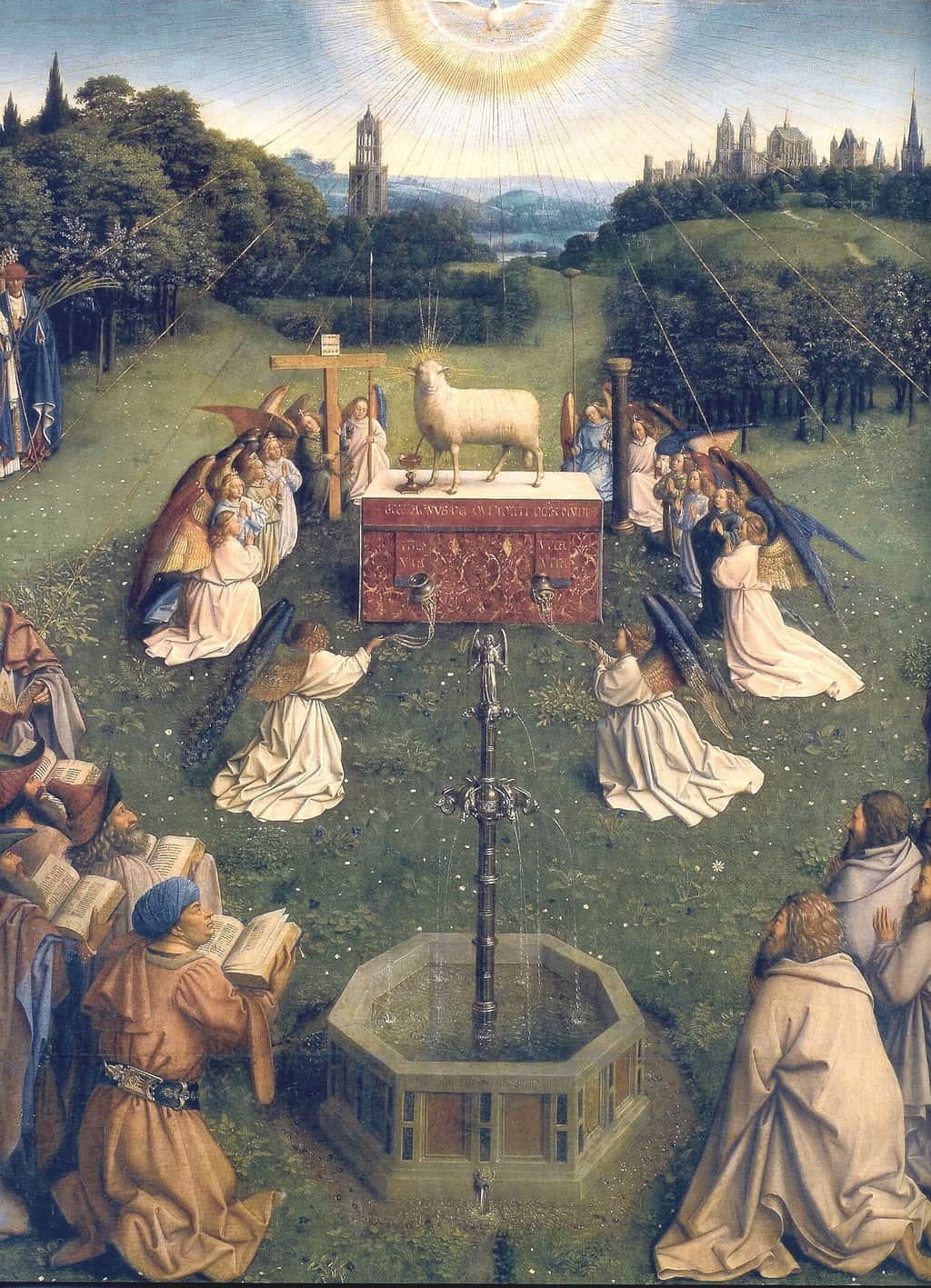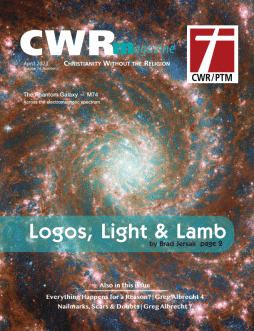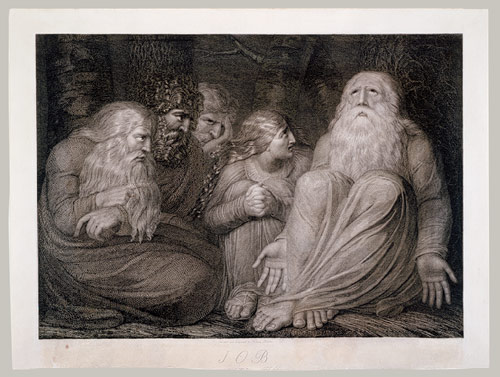Q & R with Brad Jersak – “What does ‘the Lamb slain from the foundation of the world?” mean?

Question
Greetings brother Brad. I have been privileged to hold your book, Stricken by God? in my hands. In the book, you talk about the importance of not collapsing the whole gospel narrative nor our entire soteriology (doctrine of salvation) into Good Friday. We mustn’t forget the life and ministry and resurrection of Christ as part of his saving work. I agree with you wholeheartedly. The sending of God’s son in toto is what makes our salvation possible–that is true indeed. You say, “the atonement precedes the cross,” so we look not only to Good Friday but to the whole mission of Christ from his birth, life death, resurrection, and ascension.
My question relates to Revelation 13:8 — “… the Lamb slain before the foundation of the world.” How do we understand this?
Response
That’s a great question and quite a mystery!
Here are two ways to translate this passage:
- Some, like the ESV, go like this: “…and all who dwell on
earth will worship it, everyone whose name has not been written before the foundation of the world in the book of life of the Lamb who was slain.
- And others, such as the NIV, go like this: “All inhabitants of the earth will worship the beast–all whose names have not been written in the Lamb’s book of life, the Lamb who was slain from the creation of the world.”
You seem to prefer the latter rendering. So do I. But full disclosure: the Greek is ambiguous and the majority view probably leans toward the former translation. But let’s work with the phrase, “the Lamb slain from the foundation of the world.”
What does this mean? I take it in two ways:
a. In the eternal counsels of God, creation would inevitably require redemption and redemption would be provided through the Lamb slain. So the phrase indicates God’s foreknowledge and
b. But in A More Christlike God, I also speak about God’s very nature as cruciform (cross-shaped) and kenotic (self-giving) love. So the idea of “the Lamb slain from [before] the foundation of the world” can also describe the eternal nature of God: the Triune God is Lamb-like in his self-giving love and that would ultimately also be revealed in the crucifixion.
So it’s not that Christ was literally slain outside of time, but that the nature of God’s eternal love was cruciform or sacrificial and therefore, would manifest in time and space for our redemption on Great and Holy Friday.











 Plain Truth Ministries | Box 300 | Pasadena, CA 91129-0300
Plain Truth Ministries | Box 300 | Pasadena, CA 91129-0300

